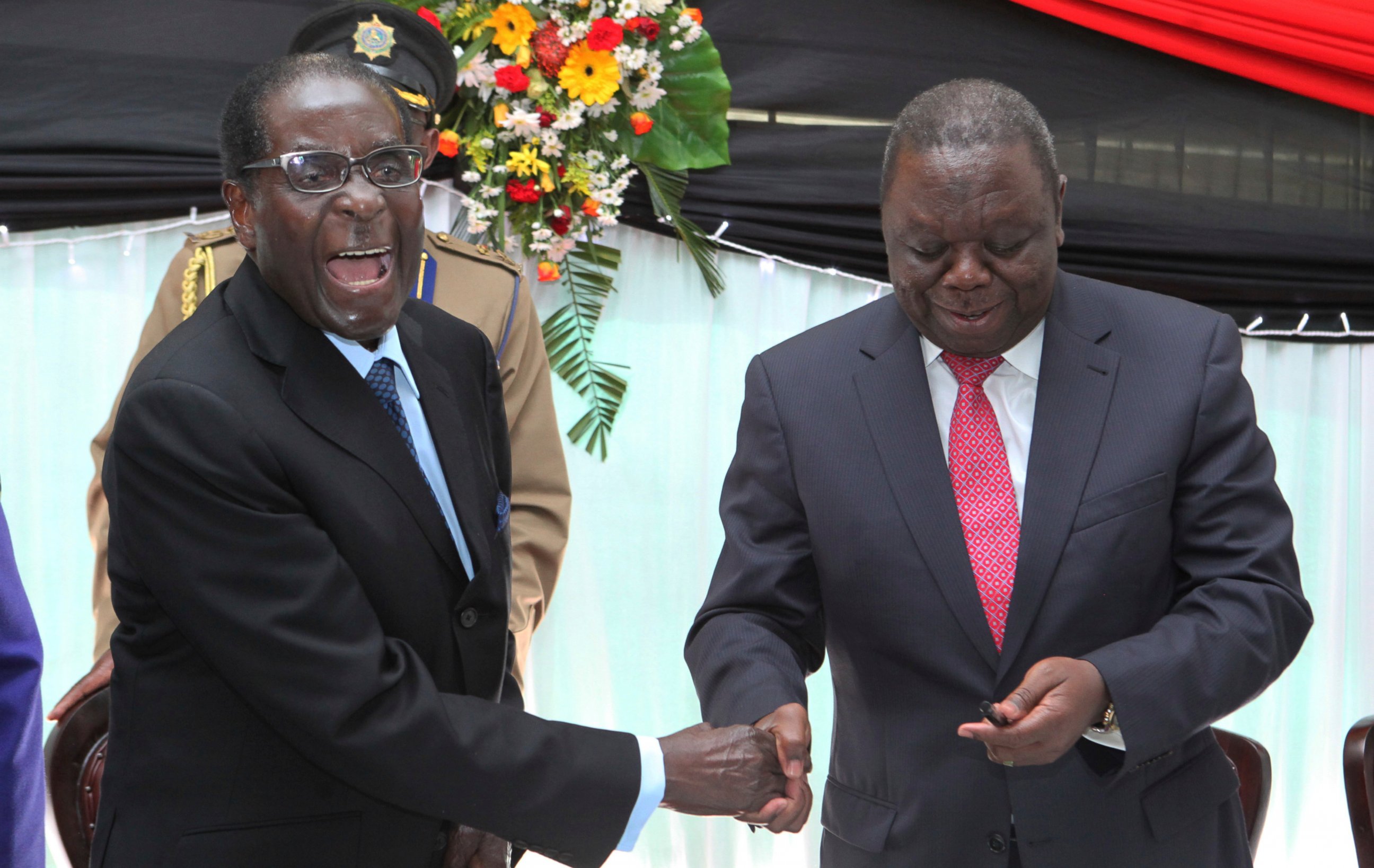Robert Mugabe, who ruled Zimbabwe for 37 years until his ouster, dies at 95
Hailed as a liberator, he ruled as a dictator until his ouster in 2017.
Robert Mugabe, the Zimbabwean liberator who ruled the African country as a dictator for nearly 40 years, died Friday at the age of 95.
A former school teacher turned revolutionary, Mugabe served more than a decade in prison for political crimes against the minority white government in the 1960s. In 1980, after a seven-year civil war, he was elected prime minister in Zimbabwe’s first free elections.

He supported the redistribution of white-controlled land to blacks, first on a voluntary basis and later by violent means. Although his rule saw the country suffer famine and economic decline, he was re-elected seven times in campaigns that were often marked by violence and fraud.
In 2003, citing the Zimbabwean government's human rights abuses and evidence of rigged elections, the United States imposed targeted sanctions, as well as a travel ban and an asset freeze, against Mugabe and his close associates.
Yet many Zimbabweans hailed him as a hero, and in 2017 he was planning to run for another term in office at the age of 93. But members of his own party, fearful that Mugabe might be planning to name his second wife as his successor, ousted him in a coup.
At the time of his ouster, he was world’s oldest head of state.
Although removed from power, Mugabe lived out his final years in his mansion in Zimbabwe’s capital, traveling abroad to seek medical treatment.
His death was announced on Twitter by his successor, President Emmerson Mnangagwa, who called Mugabe an “icon of liberation, a pan-Africanist who dedicated his life to the emancipation and empowerment of his people."
"His contribution to the history of our nation and continent will never be forgotten," Mnangagwa said. "May his soul rest in eternal peace."




